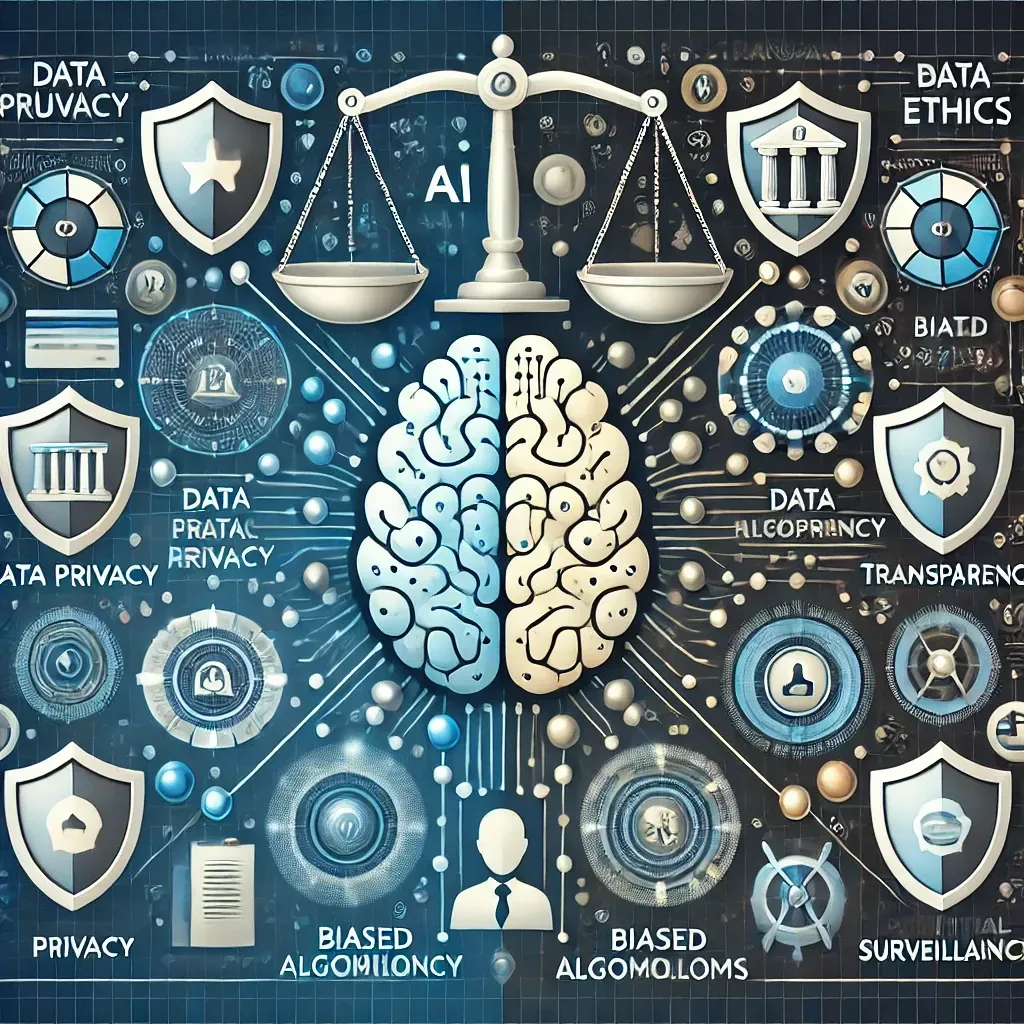
The Ethical Implications of Using AI in Marketing
The Ethical Implications of Using AI in Marketing
Artificial intelligence (AI) is transforming marketing by enabling hyper-personalization, predictive analytics, and automation.
While these advancements offer tremendous benefits, they also raise ethical questions that businesses, especially small and medium-sized businesses (SMBs), must address.
Failing to use AI responsibly can erode customer trust, harm brand reputation, and even lead to legal repercussions.
This blog explores the ethical implications of using AI in marketing, providing actionable insights, real-world examples, and practical guidelines for SMBs to adopt AI responsibly.

Why Ethics Matter in AI-Powered Marketing
Ethical marketing practices are crucial to maintaining customer trust and ensuring long-term success. AI-powered marketing amplifies ethical challenges, including:
Data Privacy Concerns: Misuse of customer data can lead to breaches and distrust.
AI Bias: Algorithms may inadvertently perpetuate stereotypes or unfair practices.
Transparency: Lack of clarity about how AI is used can alienate customers.
Ethical Challenges in AI Marketing
1. Data Privacy and Consent
AI relies heavily on customer data, making privacy a significant concern. Using data without proper consent violates privacy laws and erodes trust.
Actionable Insights:
Comply with regulations like GDPR and CCPA to ensure data protection.
Use platforms like OneTrust to manage data privacy and customer consent.
Example:
A retail store used AI to analyze purchase histories but faced backlash for sending overly personal recommendations. Transparent communication about how data is used could have prevented this.
2. AI Bias and Fairness
AI systems can unintentionally reinforce biases present in training data, leading to unfair outcomes in marketing campaigns.
Actionable Insights:
Regularly audit algorithms for biases using tools like IBM AI Fairness 360.
Diversify training data to reduce bias in AI models.
Example:
An online ad campaign targeted only male users for tech products due to biased historical data. Updating the dataset to include diverse demographics corrected the issue.
3. Transparency and Explainability
Customers may be wary of AI-driven marketing if they don’t understand how their data is being used or how decisions are made.
Actionable Insights:
Clearly disclose when AI is being used, such as in personalized recommendations or chatbots.
Use tools like Google’s Explainable AI to provide insights into AI decision-making.
Example:
A fitness app clearly explained how AI generated workout suggestions, earning user trust and boosting engagement.
4. Over-Personalization
While personalization enhances customer experiences, excessive targeting can feel invasive or manipulative.
Actionable Insights:
Balance personalization with privacy by limiting the scope of data collection.
Offer customers opt-in and opt-out options for personalized marketing.
Example:
An e-commerce site allowed users to customize the level of personalization they received, improving satisfaction and retention.
Guidelines for Ethical AI Marketing
1. Adopt Responsible Data Practices
Collect only the data you need and ensure it is stored securely.
Regularly review data policies to stay compliant with evolving regulations.
2. Prioritize Transparency
Clearly communicate how AI tools work and what benefits they offer to customers.
Provide easy-to-understand privacy policies and terms of use.
3. Ensure Algorithm Accountability
Regularly audit AI models to detect and mitigate biases.
Assign accountability for AI-related decisions within your organization.
4. Educate Your Team
Train employees on the ethical use of AI and the importance of responsible marketing practices.
Encourage ethical decision-making at every level of your business.
Practical Applications for SMBs
1. Customer Support
Ethical AI chatbots can enhance support without compromising customer data.
Tools:
Zendesk AI for automated ticketing.
Tidio for privacy-focused chat solutions.
2. Marketing Campaigns
AI can segment audiences responsibly, ensuring fair targeting and engagement.
Tools:
Mailchimp for ethical email marketing.
Salesforce Einstein for predictive analytics.
3. Ad Targeting
AI-driven ad platforms can improve ROI while respecting user privacy.
Tools:
Google Ads Smart Campaigns for compliant ad targeting.
Hootsuite Insights for ethical social listening.
Useful Links for Reference
Conclusion:
As AI continues to reshape marketing, SMBs must prioritize ethical practices to build trust and drive sustainable growth.
By addressing concerns around data privacy, bias, and transparency, businesses can unlock AI’s full potential while maintaining integrity.
Ethical AI is not just good practice — it’s a competitive advantage in today’s digital world.
Ready to harness the power of AI?
Book a call today to learn how we can implement these strategies for your business:

